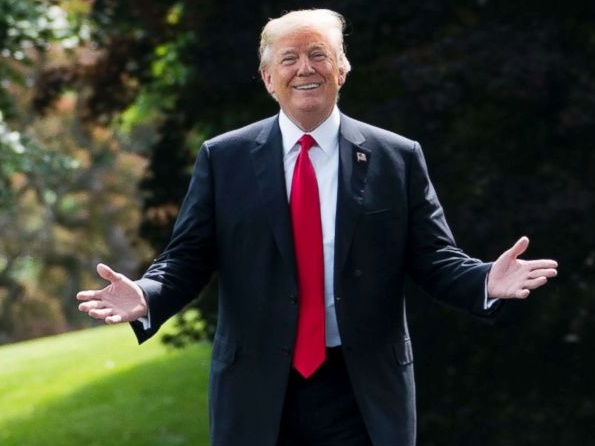Minnesotans can be cautiously optimistic that our state is turning the corner in our fight against the coronavirus.
By following the guidelines laid out by the White House Coronavirus Task Force, Minnesota has kept COVID-19 infections to under 13,000 people, with fewer than 650 deaths statewide.
President Trump’s bold response to the coronavirus pandemic isn’t just curbing the spread of the deadly disease, though — it’s also protecting countless American families from economic devastation.
Since the start of the COVID-19 outbreak, the White House has taken unprecedented action to protect the U.S. economy and support millions of working families who have been impacted by the temporary economic slowdown necessary to win the war against our nation’s invisible enemy.
The historic $2.2 trillion economic relief legislation known as the CARES Act, for example, provides American adults with up to $1,200 in aid, along with an additional $500 rebate per child, to help families in this time of need. Likewise, the CARES Act provides small- and medium-sized businesses with $350 billion in much-needed assistance, helping family-owned enterprises across America weather this unexpected storm.
The White House is already working on the next round of economic relief, negotiating with Congress to replenish the small business aid program and provide new funding for hospitals and coronavirus testing. Most importantly, the new agreement is slated to include an additional $300 billion for the Paycheck Protection Program, which helps ensure that business owners are able to continue paying their workers even if pandemic-related shutdowns have forced them to suspend normal operations.
Of course, the President’s public health initiatives also deserve recognition, because slowing the spread of COVID-19 and providing hospitals with the resources they need to save lives is a necessary prerequisite to reopening the economy. The President’s early travel restrictions, in particular, played an instrumental role in controlling the early spread of the virus in the U.S., giving us invaluable time to prepare our healthcare system for the anticipated surge of new patients. The containment measures implemented by state and local officials in accordance with White House guidelines, moreover, have proven far more effective than experts anticipated, keeping the number of COVID-19 patients well within our healthcare system’s capacity.
Notably, President Trump was also among the first world leaders to take action on COVID-19, implementing his life-saving travel restrictions at a time when the World Health Organization (WHO) was still downplaying the virus and advising countries to keep their borders open.
“We reiterate our call to all countries not to impose restrictions that unnecessarily interfere with international travel and trade,” the organization advised in early February. “Such restrictions can have the effect of increasing fear and stigma, with little public health benefit.”
If the Trump administration had listened to the WHO, the coronavirus pandemic would have become far more widespread and deadly in this country than it is. According to America’s leading infectious disease expert, Dr. Anthony Fauci, the Trump administration’s timely travel restrictions were crucial in slowing the spread of the disease and saving American lives.
Throughout the course of the pandemic, the President has also collaborated closely with officials in Minnesota and other states, helping local authorities implement coronavirus response strategies tailored to the specific conditions on the ground in each state.
“Received a very nice call from @GovTimWalz of Minnesota,” Donald Trump tweeted recently, adding that the White House is “working closely on getting him all he needs, and fast. Good things happening!”
Good things are happening, indeed. As we steadily gain the upper hand in our war against the invisible enemy, the White House is simultaneously working to provide financial stability for millions of working families and entrepreneurs across America, laying the groundwork for an unprecedented economic resurgence in the very near future.
Jennifer Carnahan is the chairwoman of the Republican Party of Minnesota.











